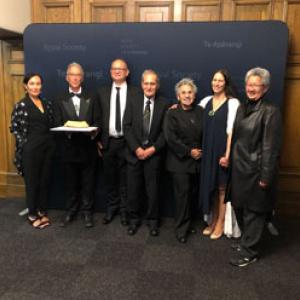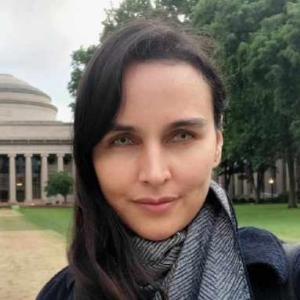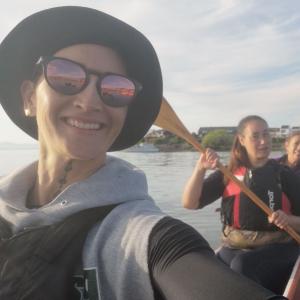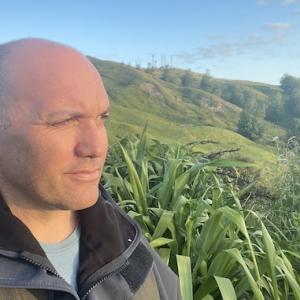The inaugural Te Rangaunua Hiranga Māori Award, which recognises excellent, innovative co-created research conducted by Māori that has made a distinctive contribution to community wellbeing and development in Aotearoa, has been awarded to Ngā Pae o te Māramatanga, New Zealand's Māori Centre of Research Excellence, by Royal Society Te Apārangi.
Working with hundreds of whānau, hapū and iwi since 2002, Ngā Pae o te Māramatanga (NPM) has successfully led and fostered the carving out of a space for community-led mātauranga Māori, te reo and tikanga Māori science research in Aotearoa New Zealand.
NPM has led the nation by committing to building Māori engagement and leadership across the science and research sector. Its hundreds of researchers, working in partnership with diverse Māori communities around the country, work at the critical interface between mātauranga Māori and science/humanities research, having major impacts both locally, nationally and internationally.
In the absence of the infrastructure that long established disciplines such as physics, history or botany enjoy, NPM needed to develop and implement new processes and structures to support Indigenous community co-created research in a tertiary environment that is not conducive to such processes.
In building this infrastructure, NPM has helped enable the formation of a new scholarly community as well as national and international confidence in Indigenous-led research. Laying this groundwork has required:
- the rapid increase of the number of Māori researchers that could design and lead critical research projects;
- the extension of the breadth and significance of Kaupapa Māori research;
- the development of transdisciplinary research methods and theories to respond to national and community need; and,
- the creation of appropriate and multiple outlets for the research.
One example of innovation that is giving life to community co-created research is wānanga, as not just a meeting practice but as a critical research method. Wānanga, as ‘spaces of integrity’ for mātauranga Māori, facilitate new knowledge creation in innovative ways. Wānanga on the marae provide a framework for how, why and where NPM meets together including how NPM listens to one another and how NPM engages with the kaupapa at hand. Collective NPM researcher/community wānanga are regularly held including most recently at Rānana Marae (Whanganui River Valley) and Wakatū Marae (Nelson).
NPM has enabled hundreds of community events including ones focusing on criminal justice system reform with Ngāti Kahungunu, water reform with Ngāi Tahu, and family violence reform with Te Whakaruruhau Waikato Women’s Refuge.
NPM has facilitated over 160 community partnered research projects many of which remain active, delivering outputs and impact for their Māori researchers and the Māori communities they work with.
In response to recieving the award past and present NPM Directors commented; "We deeply thank the foresight, ambition, generosity and resilience of the hundreds of Māori Principal Investigators, Māori postgraduate students and Māori communities throughout Aotearoa who together have forged a positive transformative legacy of Māori-led solutions for the nation. On their behalf, we are thrilled to accept this research excellence award”.

He Kōrero | Our Stories
Neuroscientist Nicole Edwards is establishing her own lab at the University of Auckland and is eager to tautoko students interested in a career in brain research.
AUT senior lecturer Deborah Heke encourages wāhine Māori to cherish their connection with te taiao.
Tairāwhiti local Manu Caddie is a vocal critic of forestry companies engaged in unsustainable land practices in the rohe. He shares his insights on what needs to change".


